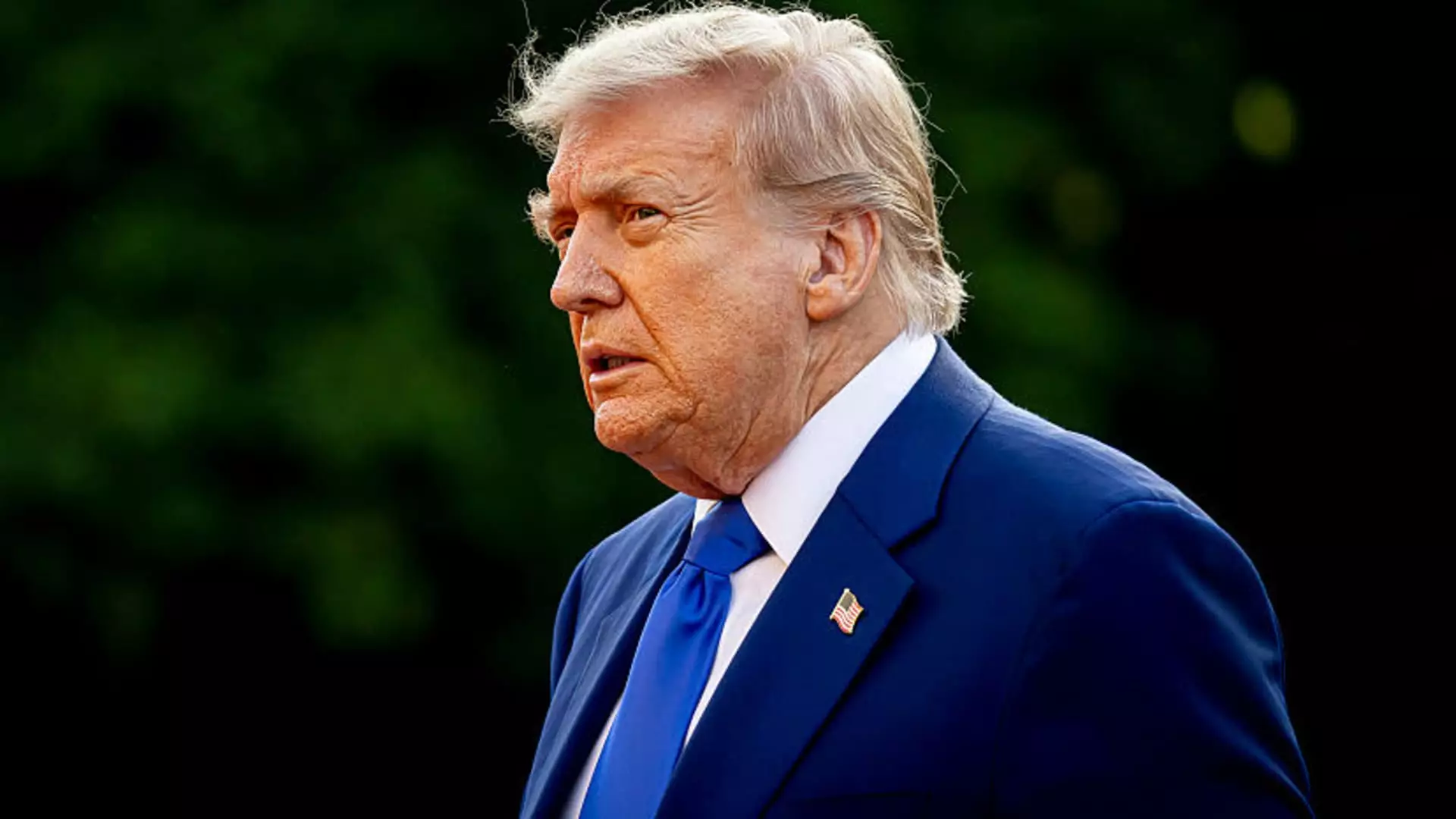The political landscape surrounding trade in the United States has once again become a breeding ground for uncertainty, courtesy of President Donald Trump’s administration. The recent statements from White House Press Secretary Karoline Leavitt about the potential extension of tariff pauses illustrate not only the administration’s approach to trade negotiations but also a reflection of a broader indecisiveness that could have far-reaching implications for American businesses and workers alike. This scenario offers a contradictory picture: while on one hand, there are signals of optimism regarding trade deals, on the other, the lack of concrete timelines raises eyebrows.
The notion that deadlines surrounding trade agreements are “not critical” can be seen as a dangerous narrative. By suggesting that Trump can simply “provide these countries with a deal” if they refuse to comply, the administration is essentially asking us to assume a passive role in these crucial negotiations. This reliance on the arbitrary whims of a president rather than engaging partners in good-faith negotiations is not only strategy-light but reflects a more profound problem in American economic policy—disregarding the principles of reciprocity and mutual benefit that should define international trade.
The Eurozone Tug-of-War
Highlighting the ongoing tussle with the European Union, Trump’s previous threats of imposing a staggering 50% tariff on goods from Europe should not be taken lightly. Such aggressive maneuvering can create irreversible damage, not just to transatlantic relations but also to American consumers, who ultimately bear the brunt of such tariffs. The delay agreed upon after European Commission President Ursula von der Leyen’s plea only underscores the stumbling nature of these discussions. The potential extension of the tariff deadline may hold the key to a “good deal,” but at what cost? By dragging negotiations out, the administration risks losing its leverage, ceding ground to our allies instead of strengthening the foundations for a robust commercial framework.
Currently, the whispers coming out of the White House suggest a preference for short-term political gains rather than a long-term strategy that serves American interests. Stocks may rise momentarily on news of delays, but market resilience is contingent upon consistent and coherent policy-making—not an ever-shifting deadline that keeps stakeholders guessing.
The Limbo of Trade Deals
As of now, America finds itself in a precarious limbo, with trade deals more reminiscent of half-hearted promises than enforceable agreements. The U.S.’s claimed success with trade initiatives involving countries like China and the United Kingdom remains woefully superficial, often described as “frameworks” rather than finalized arrangements. While officials from Trump’s administration suggest we’re on the cusp of groundbreaking negotiations with other countries like India, the continued postponement of tangible agreements paints a bleak picture.
The assertion from the White House Council of Economic Advisers that “good faith” negotiations are ongoing, while simultaneously acknowledging the potential for extending tariff rates, is filled with ironic contradictions. Trade relationships are often built not merely on good intentions but on binding contracts and enforceable agreements. When those tangible assurances are absent, it undermines the very integrity of American diplomacy.
The Illusion of Confidence
Trump aides are quick to project optimism, claiming that trade deals will flood in after Congress aligns its internal agendas. However, using Congress’s legislative timeline as a shield for inaction provides little comfort. The frequent declarations that we are “very close” to securing significant deals sound more like a defensive mechanism than a genuine articulation of progress. It bears resemblance to a magician’s illusion, where the audience is wowed by uncertain promises but left wondering how much of it is mere sleight-of-hand.
In a highly interconnected global economy, flirting with trade deadlines risks not only America’s goodwill but also its long-term economic viability. The evidence suggests that a more stable, predictable path is essential for both the American workforce and global trade partners. As policymakers navigate this pivotal juncture, they must let go of the whimsical tactics that characterize Trump’s tariffs and instead foster an environment where cooperative dialogue can thrive, ultimately benefitting all parties involved in the trade dance.

Leave a Reply